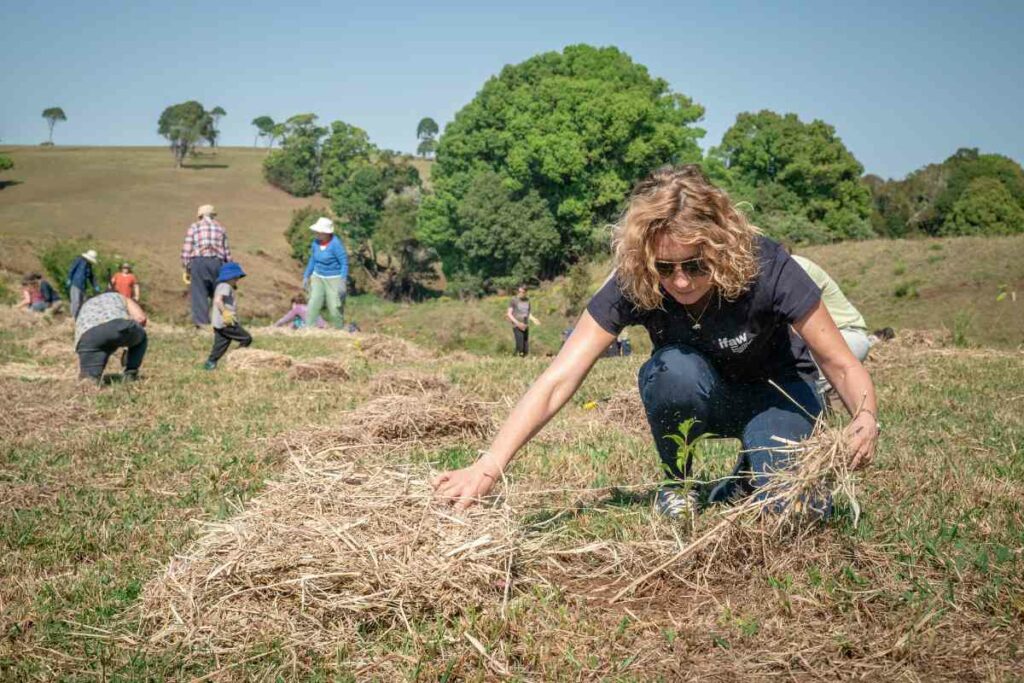Every year, more than 10 million international travelers from wealthy nations flock to the Global South to engage in short-term volunteer work.
On the face of it, the premise of voluntourism looks to be a noble alternative to a typical vacation.
But voluntourism can be a double-edged sword.
Let’s have a look at this in depth.
What Is Voluntourism?

Voluntourism, a portmanteau of volunteering and tourism, is an increasingly popular phenomenon in the tourism industry.
It’s where privileged travelers— primarily young people from Europe and North America —visit the so-called Third World countries, hoping to ‘make a difference’ in these communities.
Voluntourists do a lot of good work in the communities that they visit. They are involved in education, healthcare, agriculture, conservation, and more.
For most volunteers, though, the destination is an orphanage where they can care for disadvantaged children — aka orphanage tourism.
The Pros and Cons of Voluntourism
In this section, we’ll explore the pros and cons of voluntourism.
There’s nothing wrong with traveling for a good cause, right?
And yet so many believe that volunteer tourism is an unethical practice.
Do these concerns warrant any merit?
Benefits of Voluntourism
There’s a lot of talk about the damage that voluntourism can do to local communities.

But when managed responsibly, volunteer tourism can yield many benefits for the host community. Here are the pros of voluntourism.
- A chance to help the community. Some of these communities have a shortage of skilled labor, such as doctors, teachers, counselors, etc. Volunteer tourists can help address some of these needs if they have the skills to take on these roles.
- A more profound cross-cultural experience. Volunteering tourism offers tourists and their host communities a more profound cultural exchange experience than an ordinary vacation. Instead of the usual hotspots, tourists interact with locals off the beaten path and build lasting connections.
- Increased social capital. Social capital is the value derived from positive connections between friends and acquaintances. We cultivate social capital through repeated positive actions and interactions. Voluntourism allows people to build trust, share values, and form friendships, enhancing social capital.
- A more fulfilling vacation. As a volunteer tourist, you’ll spend most of your time with people of all ages and walks of life in your host community. No classroom can match this way of learning about the world, and it goes both ways.
- A bigger impact. In developing countries, just a handful of tourist ‘hotspots’ enjoy substantial economic benefits from tourism. Voluntourism projects often benefit communities that don’t typically gain from tourism. If you want your tourism dollars to have a more significant impact, voluntourism is a good idea.
- Boosts local economy. Another potential benefit of voluntourism is its potential to create jobs in the communities. Volunteer tourists often have to pay their way throughout the experience. They must pay for food, lodging, transport, etc., improving the local economy.
- Voluntourism creates jobs. A knock-on effect of a booming economy is job creation. The tourists will need drivers, cooks, guides, etc., and the locals will have the lion’s share of the newly created jobs. Voluntourism creates work opportunities for the locals.
- Alleviates poverty. We can’t overlook the role of voluntourism in alleviating poverty. A thriving local economy leads to more jobs and lower poverty rates. It’s important, given that poverty is often the most prominent hurdle people in these communities must overcome.
- Helps with conservation efforts. The environment is among the leading beneficiaries of voluntourism. The host communities, which often have more pressing issues to address, benefit from the tourist’s efforts to protect vulnerable areas and wildlife.
Potential Drawbacks
As you can see, voluntourism offers beneficial opportunities for tourists and the host communities.
But as you might expect, it’s not always rainbows and butterflies in volunteer tourism. There are numerous criticisms of voluntourism.
The main concerns with voluntourism revolve around orphanage tourism, but there are other problems with this kind of tourism.

Some of these include:
- Disrupts local economies. Volunteer tourism can disrupt the local economy significantly. When voluntourists show up for work, they may put local carpenters, masons, teachers, and medical professionals out of work, disrupting the local economy.
- Drains local resources. Voluntourism can also drain local resources. The host communities appreciate the volunteers and go above and beyond to provide sufficient food and accommodations, draining local resources.
- Services are short-term. Most volunteer tourists are only available for a short period. While their short-term vocation may be acceptable for crisis relief, it’s usually not enough to make a lasting impact. Planning long-term, especially with education or conservation programs, is always best.
- Shoddy work. Volutourists often lack the necessary skills for the tasks they are signing up for in the communities they visit. You may end up derailing the project if you don’t know what you’re doing, so you should strive to match your skill set to what you’re expected to do in the field.
- Inexperience. Another potential problem with volunteer tourists, often college students, is a lack of related experience. For that reason, volunteer tourism projects may take more energy, money, and time to complete.
- Lack of supervision. In most cases, volunteer tourists are poorly supervised — if at all — and this may impact the quality of their work. The volunteers have nothing but good intentions, but their work may need stricter supervision.
- May put vulnerable children at risk. Orphanage tourism, one of the most common forms of voluntourism, provides strangers access to vulnerable children, putting them at risk of sexual or physical abuse.
- Creates dependency. Another major criticism of voluntourism is that it prevents self-establishment. This may happen when communities become dependent on tourists on issues such as healthcare, education, etc., and forego opportunities to invest in sustainable locally-driven development.
- Dishonest volunteer companies. Most volunteer tourists work with volunteer companies, which are not always forthcoming in their dealings. Some of these organizations have been accused of forced begging, sometimes even starving the children to make them look malnourished.
- Helping for the wrong reasons. It’s good to want to help those in need, but one should be careful not to do it for the wrong reasons. Some may take up volunteer work to prop up their resumes and do shoddy work because they don’t want to be there.
Doing Voluntourism the Right Way
Being a volunteer in tourism can be a rewarding and fulfilling endeavor. But as you can see, the dangers of voluntourism are real.
Doing more harm than good as a volunteer tourist is easy, so you should be more careful.

Some due diligence can go a long way toward helping you avoid these pitfalls. For instance, start by ensuring you’re working with a reputable volunteer organization.
You also need to ensure that you have valuable skills to contribute and that you’re not doing it for the wrong reasons.
What is your motivation for choosing to engage in volunteer tourism? Always ask for permission to take pictures of children. More importantly, don’t take photos for self-promotion.
Conclusion
Granted, voluntourism has its benefits.
But for it to be considered valuable, it should have at least equal positive outcomes for the volunteers and the communities they visit, which isn’t always the case.
And despite their best intentions, volunteer travelers may do more harm than good.
- Hidden Gems vs Tourist Spots: Saving Pounds on Your Next Vacation
- Master the Art of Travel Thrifting: Tips from the Pros
- Travel Like a Spy: Secret Skills for Safe Adventuring
- The Hidden Tourist Traps: 5 Costly Scams to Avoid Abroad
- Luxury vs. Budget Travel: Uncover Odd Similarities
- The World’s Most Scenic Airport Landings






